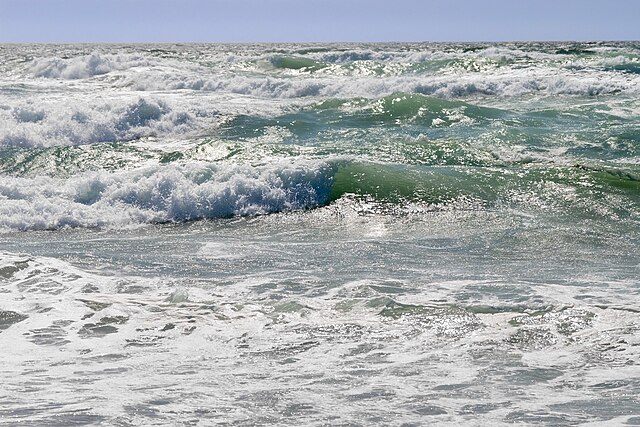An exclusive economic zone (EEZ), as prescribed by the 1982 United Nations Convention on the Law of the Sea, is an area of the sea in which a sovereign state has exclusive rights regarding the exploration and use of marine resources, including energy production from water and wind. EEZ does not define the ownership of any maritime features within the EEZ.
Croatia's exclusive economic zone (dark blue) and Ecological and Fisheries Protection Zone
Exclusive Economic Zone of Greece
Senegal's exclusive economic zone
Natural resources are resources that are drawn from nature and used with few modifications. This includes the sources of valued characteristics such as commercial and industrial use, aesthetic value, scientific interest, and cultural value. On Earth, it includes sunlight, atmosphere, water, land, all minerals along with all vegetation, and wildlife.
The rainforest in Amazon, in the Marquesas Islands, is an example of an undisturbed natural resource. Forest provides timber for humans, food, water and shelter for the flora and fauna tribes and animals. The nutrient cycle between organisms forms food chains and fosters a biodiversity of species.
The Carson Fall in Mount Kinabalu, Malaysia is an example of undisturbed natural resources. Waterfalls provide spring water for humans, animals and plants for survival and also habitat for marine organisms. The water current can be used to turn turbines for hydroelectric generation.
The ocean is an example of a natural resource. Ocean waves can be used to generate wave power, a renewable energy source. Ocean water is important for salt production, desalination, and providing habitat for deep-water fishes. There is biodiversity of marine species in the sea where nutrient cycles are common.
A picture of the Udachnaya pipe, an open-pit diamond mine in Siberia. An example of a non-renewable natural resource.







